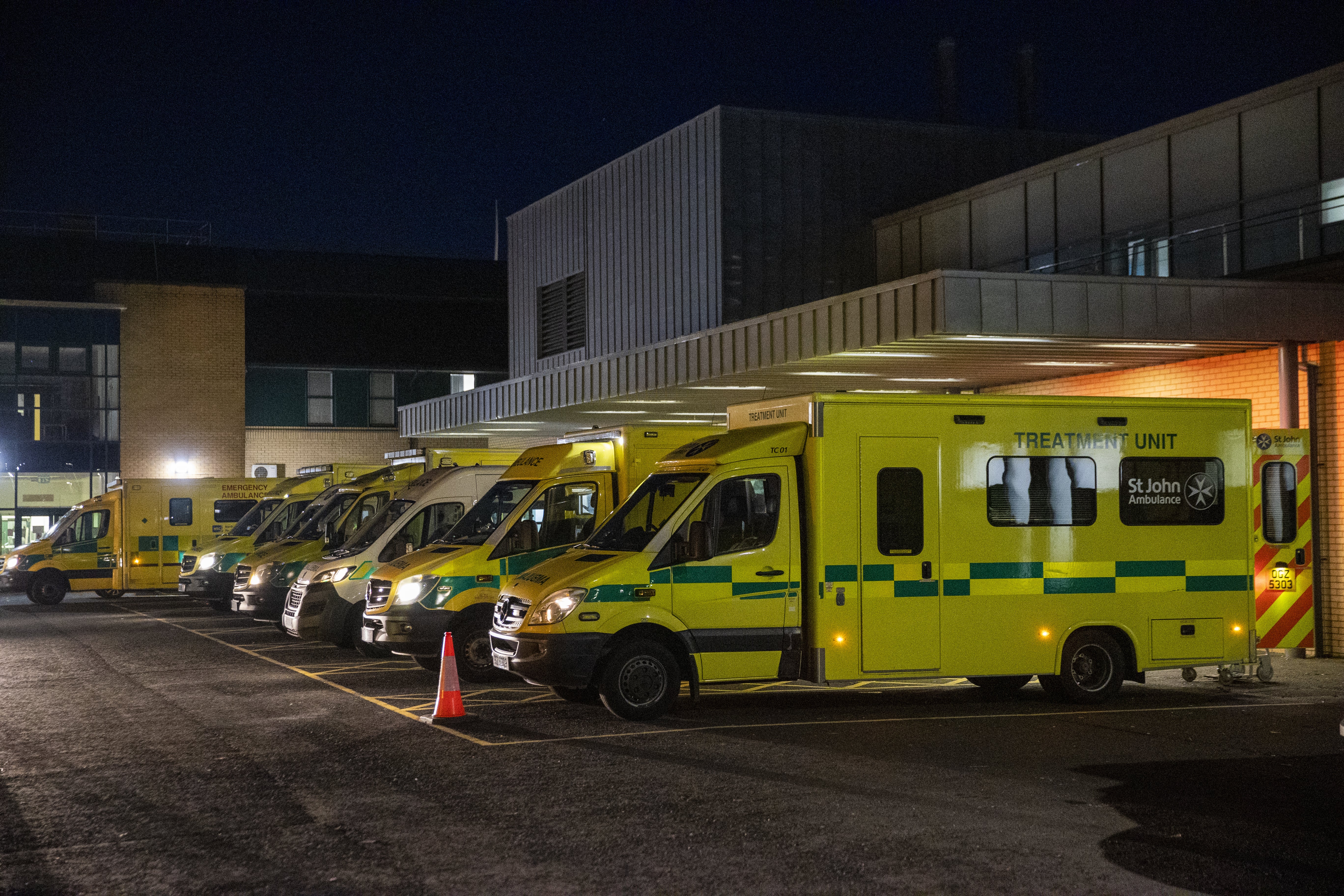Health minister issues direct plea to parties to sort out budget
Robin Swann said the events of the last week were further evidence of the crisis in the health service in Northern Ireland.

Your support helps us to tell the story
From reproductive rights to climate change to Big Tech, The Independent is on the ground when the story is developing. Whether it's investigating the financials of Elon Musk's pro-Trump PAC or producing our latest documentary, 'The A Word', which shines a light on the American women fighting for reproductive rights, we know how important it is to parse out the facts from the messaging.
At such a critical moment in US history, we need reporters on the ground. Your donation allows us to keep sending journalists to speak to both sides of the story.
The Independent is trusted by Americans across the entire political spectrum. And unlike many other quality news outlets, we choose not to lock Americans out of our reporting and analysis with paywalls. We believe quality journalism should be available to everyone, paid for by those who can afford it.
Your support makes all the difference.Health Minister Robin Swann has issued a direct plea to his Stormont ministerial colleagues to find a way forward in agreeing a budget to help resolve the crisis in the health service.
Mr Swann said that the failure of political parties to agree a three-year budget had “cruelly robbed” patients and health staff of the best chance in a decade of reforming services.
The current strain on hospitals this week led the Northern Trust to declare a “potential major incident” due to severe pressures in the hospital’s Emergency Department.
At one point, 62 people needed to be admitted to beds that were not available in wards.
Tuesday’s declaration was one step away from a full major incident, which would have involved the hospital being unable to take any further patients and effectively shutting its doors.
The DUP decision to pull first minister Paul Givan out of the Executive, in protest at Brexit’s Northern Ireland Protocol, automatically ousted Sinn Fein deputy first minister Michelle O’Neill from office and removed the powersharing administration’s powers to make significant decisions.
I am pleading with all parties and my fellow ministers to work together and sort out the budget
Stormont cannot now strike a proposed three year budget for the period 2022-25, a spending plan that envisaged a 10% cash uplift for the Department of Health.
Speaking to the media at Stormont, Mr Swann said: “Today I am pleading.
“I am pleading with all parties and my fellow ministers to work together and sort out the budget.
“Ideally by re-establishing the Executive, or failing that by finding some other way forward.
“Our waiting lists are appalling, but in the absence of funding and a functioning executive they will likely get worse instead of better.
“That is the abhorrent reality of the situation we are currently facing.”
The minister added: “Anyone who suggests that there are quick and easy answers are doing a disservice to patients, they are doing a disservice to the staff and they are doing a disservice to the public.
“There is no solution which does not involve significant and long-term investment.
“The fact that we have limped from one single-year budget to the next for the last seven to eight years was just another reason our health service has been unable to keep up with demand.
“The real damage caused by the loss of additional funding that the draft budget would have provided cannot be stressed enough.
“I still hope that some budget certainty can be raised from those ashes but in the likely event it isn’t, patients and staff have been cruelly robbed of the best chance they have had in the last decade.
“You can’t rebuild capacity without the certainty of funding and without training and recruiting the necessary numbers of staff.”
The fundamental problem we see now is one of capacity. Larger numbers of frail and sick people, more than the system is currently able to cope with
The minister said the events of the past week had brought yet more evidence of the “the ongoing deep crisis facing our health and social care system”.
He added: “This crisis has been a decade and more in the making. Years of under investment, years of failure to properly workforce plan and develop adequate capacity.
“Years of poor performance management, years of kicking cans down the road in terms of reform, strategic leadership and targeted investment.
“Covid has certainly helped to bring this crisis to a head, an already badly battered system is still reeling from the pandemic.
“The fundamental problem we see now is one of capacity.
“Larger numbers of frail and sick people, more than the system is currently able to cope with.
“We have to build that capacity up but that is not something which can be done overnight.
“We can’t reverse the errors of a decade in a matter of months.”